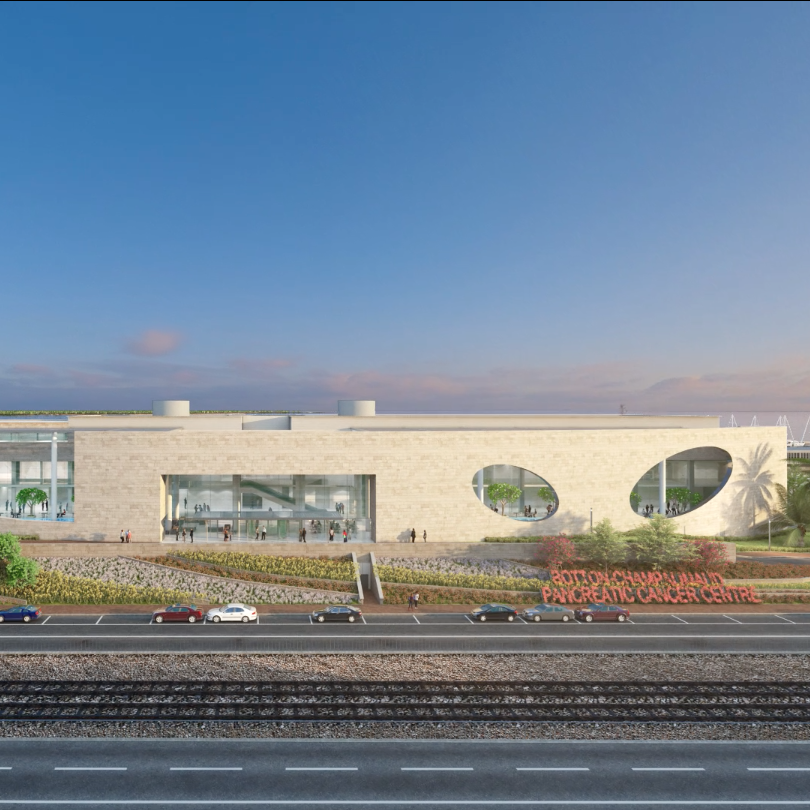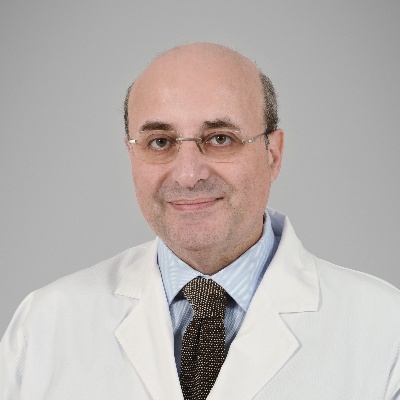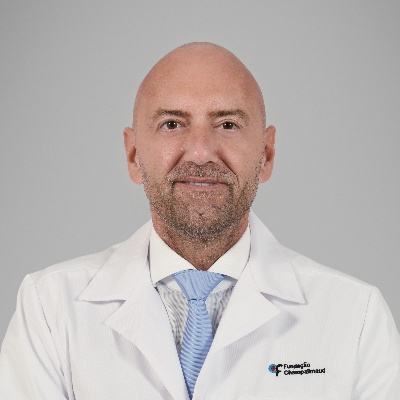Randy Pausch’s story is both a tragic and a generous one. He was an American computer science professor and virtual reality wizard at the University of Carnegie Mellon, in Pittsburgh, who died of pancreatic cancer in July 2008, at the age of 47.
At Carnegie-Mellon, tradition allowed professors to “pretend” that they were dying and give a “last lecture” to convey their most relevant life lessons for posterity. In November 2007, when Pausch took the stage for his talk, he decided instead to tell his audience about a very personal and emotional matter: his disease. He was dying fast, his doctor had just told him; this was a real, not a fake, impending death. His lecture soon became famous online and was later made into a book.
Pausch’s last achievement was to become an activist advocating for research and new therapies against pancreatic cancer: a few weeks prior to his death, on 13 March 2008, and in spite of his rapidly deteriorating health, he went to Washington to participate in a hearing about pancreatic cancer before a Congressional Committee.
He spoke bluntly: nobody talks about this cancer because its victims die too fast, he declared. The youngest and most innovative scientists are not interested because there is no money for research in this area. And if this goes on, there will never be a cure. Chemotherapy and surgery are no longer enough, the future lies in genetics. With money for research, Pausch believed that there would be a cure for pancreatic cancer by the time his small children turned into grown adults.
According to data from the US National Institute of Cancer (NCI), in 1999 total public funding for pancreatic cancer in the US was a measly… 17.3 million dollars. It is true that it had increased to 153 million dollars by 2016, importantly through the action of an advocacy group, the Pancreatic Cancer Action Networks (or PanCan). Private donors also contributed substantial funding in response to PanCan’s appeals.
Nevertheless, compared to breast cancer funding, for example, which amounted to 516.2 million dollars from the NCI that same year, pancreatic cancer research was – and still is – severely underfunded. This disparity becomes all the more blatant when considering that, in the US, pancreatic cancer will soon become the second most common cause of cancer death, surpassing breast, colon and prostate cancer.
As if being extremely deadly and difficult to diagnose in early stages were not enough, the global incidence of pancreatic cancer, which was once a so-called rare disease, has been rising steeply these last years. Today, many of us personally know one or more people – friends, family, colleagues – who have lost the battle against pancreatic cancer. In 2018, according to Globocan (the Global Cancer Observatory of the World Health Organisation), there were 458,918 new cases of pancreatic cancer registered worldwide and 432,242 deaths, with more than half of the deaths in the most developed countries.
“The incidence of pancreatic cancer is increasing around the world and pancreatic cancer is already the fourth most common cause of cancer-related death in Europe”, says Carlos Carvalho, the medical oncologist who leads the Digestive Tumour Unit at the Champalimaud Clinical Centre, in Lisbon, Portugal. “In the next 10 to 20 years, it is estimated that the worldwide incidence of pancreatic cancer may increase by more than 70%, which would make pancreatic cancer the second largest cause of cancer death in Europe and in the US.” An alarming situation, likely explainable by population aging, smoking, high alcohol consumption, and the current obesity and late-onset diabetes epidemics, experts agree.
Pancreatic cancer efforts at the Champalimaud Foundation
“Unfortunately”, says Carlos Carvalho, “there are still no effective screening tests to detect early pancreatic cancer in the general population and the vast majority of pancreatic cancers are not associated with a particular high-risk group or to a specific hereditary condition.” However, people with a close family history of pancreatic cancer and patients with some types of pancreatic lesions may also have an increased risk of developing pancreatic cancer. Currently, the Champalimaud Clinical Centre already offers families and patients at higher risk a specific surveillance programme to try to prevent or to diagnose the disease as early as possible.
Actually, in early stages, pancreatic cancer symptoms are frequently absent or nonspecific. Most patients only develop symptoms with more advanced disease, which may include fatigue, weight and muscle loss, loss of appetite, nausea, jaundice, abdominal pain, or a recent onset of diabetes. With no effective diagnostic screening and few early signaling symptoms, more than 80% of pancreatic cancers are diagnosed at an advanced stage, either with metastases already present in other organs, or when the primary tumour is already too big or too difficult to be removed by surgery.
Another challenge posed by pancreatic cancer is the biological aggressiveness of the tumour. At the more advanced stages, the cancer’s spread to other organs becomes much more difficult to control, and novel treatments are still lacking. In fact, more than half of the patients who seek medical help already show metastatic spread of their pancreatic cancer to other organs. And even when the tumour can be surgically removed, there is still a high risk that some remaining tumour cells may lead to the development of metastases in the first few years after surgery.
With this in mind, researchers at the Champalimaud Foundation are already exploring new avenues to understand why pancreatic cancer has this tendency to develop early metastases. “Bruno Costa-Silva and his Systems Oncology lab are currently studying how some very small particles released by cancer, so-called tumour exosomes, can be involved in this early metastatic tumour spread”, says Carlos Carvalho. “Hopefully, since these exosomes also contain genomic and other information about cancer cells, this type of research may help to explain why pancreatic cancer is so aggressive and it may even contribute to earlier diagnosis or aid the development of treatment alternatives.”
Without any screening diagnostic tests, with rare initial signs and the aggressive tendency to develop early metastases, the global 5-year survival rate of patients with pancreatic cancer was under 10% a few years ago, while for breast cancer it has reached 90% (SEER / NCI – patients of all stages diagnosed 2010-2016). Nonetheless, in the last decade there have been some significant advances. Modern chemotherapy regimens are capable of inducing better tumour responses and are being increasingly used to reduce the tumour volume, to increase the possibility of surgery and also to diminish the probability of metastases spreading to different organs. “Currently, with the combination of effective chemotherapy and good pancreatic surgery, the 5-year survival rate of patients who had their pancreatic cancer removed by surgery has improved to over 40%”, says Carlos Carvalho. “In this particular group of patients, many now have a real possibility of surviving for a very long time and even getting cured.”
One of the major difficulties in pancreatic surgery is the deep location of the pancreas, between the stomach and the spine, and its closeness to major vital abdominal vessels. Pancreatic cancer often grows around these vessels, making it difficult or even impossible to completely remove the tumour. In these so-called locally advanced tumours, preoperative chemotherapy is now being used to shrink the tumour volume. This may then allow the patient to undergo surgery. But surgeons may still need to resect some of the vessels in this difficult area and this always demands a lot of experience, surgical skills and expertise.
“At the Champalimaud Foundation, our fully dedicated pancreas surgical team is experienced in all types of pancreatic surgery, from the minimally invasive to the most complex and demanding pancreatic vascular resections where these vital vessels are also involved”, says Carlos Carvalho. “Our multidisciplinary clinical and research teams strive to offer patients with pancreatic cancer different options of combinatorial and individualised treatments that may include surgery, chemotherapy, radiotherapy, and even more innovative therapies that usually involve a more detailed genomic-molecular characterisation of the tumour or the inclusion in specific clinical trials.”
The future: the Botton-Champalimaud Pancreatic Cancer Centre
The global 5-year survival rate of patients with pancreatic cancer is still very low. In the United States, it has very recently reached 10%; in Europe, it is around 9%.
In 2018, the Champalimaud Foundation announced, thanks to a donation of 50 million euros by Mauricio Botton Carasso and Charlotte Botton, the decision to open a centre dedicated to a multidisciplinary approach to the war against pancreatic cancer. This multidisciplinary research and clinical facility will be housed in a new building, right next door to the “mother ship” building of the Foundation’s Centre for the Unknown. The construction of the Botton-Champalimaud Pancreatic Cancer Centre will be concluded in October 2021.
“The launch of the Botton-Champalimaud Pancreatic Cancer Centre is a clear response to this urgent need for a more consistent and dedicated investment to offer improved treatment options for patients with pancreatic cancer”, says Carlos Carvalho. “The new centre will gather an international team of clinicians and clinical researchers in a unique environment, equipped with cutting-edge laboratories and platforms to explore unanswered questions concerning the biology and clinical evolution of pancreatic cancer, and with a constant focus on developing promising therapies and innovative clinical trials that may provide a concrete and realistic hope of changing the future of patients with pancreatic cancer.”
The Botton-Champalimaud Pancreatic Cancer Centre strategy: best patient care, “fusion” research and innovative treatments
Modern cancer research and innovative treatments critically depend on bringing together clinical and “translational” cancer researchers. This “fusion” of work and concepts is exemplified by the daily collaboration of oncologists like Carlos Carvalho and cancer scientists like Markus Maeurer, who is heading the Immunotherapy Programme at the Champalimaud Foundation. They both raise another intriguing question concerning pancreatic cancer: “Why do so many patients fail to respond to most of the available anticancer drugs?”.
In Markus Maeurer’s lab, pancreatic cancer cells are being systematically collected, along with the corresponding immune cells, to undergo a deep molecular, genomic, functional, and immunological ‘fingerprint analysis’ associated with the success or failure of different treatments. “Hopefully this may help to better understand why pancreatic cancer is so resistant to the current treatments and what could be an alternative strategy” says Carlos Carvalho.
Currently, one of the most promising areas in cancer is immunotherapy. “For some types of tumours, cancer immunotherapy is already one of the main treatment options”, says Markus Maeurer. But unfortunately, only a very small number of patients with pancreatic cancer respond to the available immunotherapy “drugs”. Yet, there are new types of immunotherapy and novel ways of combining it with other standard or even more advanced cancer treatments.
One of these new modalities of immunotherapy is “cellular immunotherapy”, where immune cells can be collected, multiplied, and then activated or directed to destroy cancer cells in an individual patient. A number of clinical studies have already shown that cellular immunotherapy is able to effectively control the disease in patients with some types of cancers, like melanoma, some types of leukaemia or lymphoma and in patients with cervical cancer.
“Cellular immunotherapy requires specifically designed laboratories that are able to collect and manipulate the immune cells in a sterile, secure, and controlled environment”, says Markus Maeurer. “But only very few cancer centres in the world have these types of highly specialised facilities for ‘good manufacturing practice’ (or ‘GMP’) of cells to be used for immunotherapy. Such a GMP facility is already being installed at the new Botton-Champalimaud Pancreatic Cancer Centre.” As Markus Maeurer explains, this will not only allow scientists to investigate some of the most promising types of cellular immunotherapy, but also allow doctors to collect and prepare immune cells that can actually be used to treat individual patients with pancreatic cancer. “Different types of immune cells can be produced in these special GMP laboratories”, Markus Maeurer points out: “either cells that recognise tumour cells and infiltrate into the close vicinity of the cancer, called tumour-infiltrating lymphocytes (or TIL), or genetically modified immune cells that are directed against specific tumour targets, called ‘chimeric antigen receptors T cells’ (or CAR-T cells).” One of the aims at the Botton-Champalimaud Pancreatic Cancer Centre will be to explore the use of these innovative anticancer “immune cellular therapies” in new clinical trials dedicated to patients with pancreatic cancer.
Markus Maeurer also points out that another promising type of immunotherapy is the use of anti-tumour vaccines. Some of these anti-tumour vaccines rely on the administration of synthetically produced substances that cannot of themselves induce cancer but that include synthetic antigens identical to some of the tumour-specific antigens present in the cancer cells (antigens are molecules that are recognised as foreign and can thus be attacked by the immune system). The synthetic antigens in the vaccine may then help to stimulate the patient’s own immune cells against the cancer cells that harbour the same type of tumor antigens.
Like other international cancer centres, the Champalimaud Foundation has already developed research in this area and is establishing collaborations to open future vaccine clinical trials for pancreatic cancer patients.
Other types of immunotherapy to be explored at the Botton-Champalimaud Pancreatic Cancer Centre will include the infusion of so-called cytokines, proteins that provide important signals between immune cells and other cells of the body. “Certain cytokines appear to be promising for the treatment of patients with pancreatic cancer because they specifically alert immune cells to better fight against cancer cells and make them more resistant against negative signals from cancer cells”, says Markus Maeurer.
“The effective fight against pancreatic cancer requires social awareness, strategic vision, determination and resources, but also the recognition that such a global effort to fight against pancreatic cancer must be shared in multi-disciplinary partnerships”, he continues. In fact, the Botton-Champalimaud Pancreatic Cancer Centre has already developed the first strategic partnerships with other dedicated cancer centres in Asia (Shandong University, in China), Europe (Gustave Roussy Institute, in France) and in the USA (University of Pittsburgh Cancer Center). “These partnerships involve the open sharing of knowledge, clinical expertise and investments in common clinical research and clinical protocols, with the strong hope that this may be the start of a more optimistic outlook for the future of patients diagnosed with pancreatic cancer”, concludes Carlos Carvalho.
By Ana Gerschenfeld, Science Writer of the Champalimaud Foundation (with Dr. Carlos Carvalho and Prof. Markus Maeurer).



